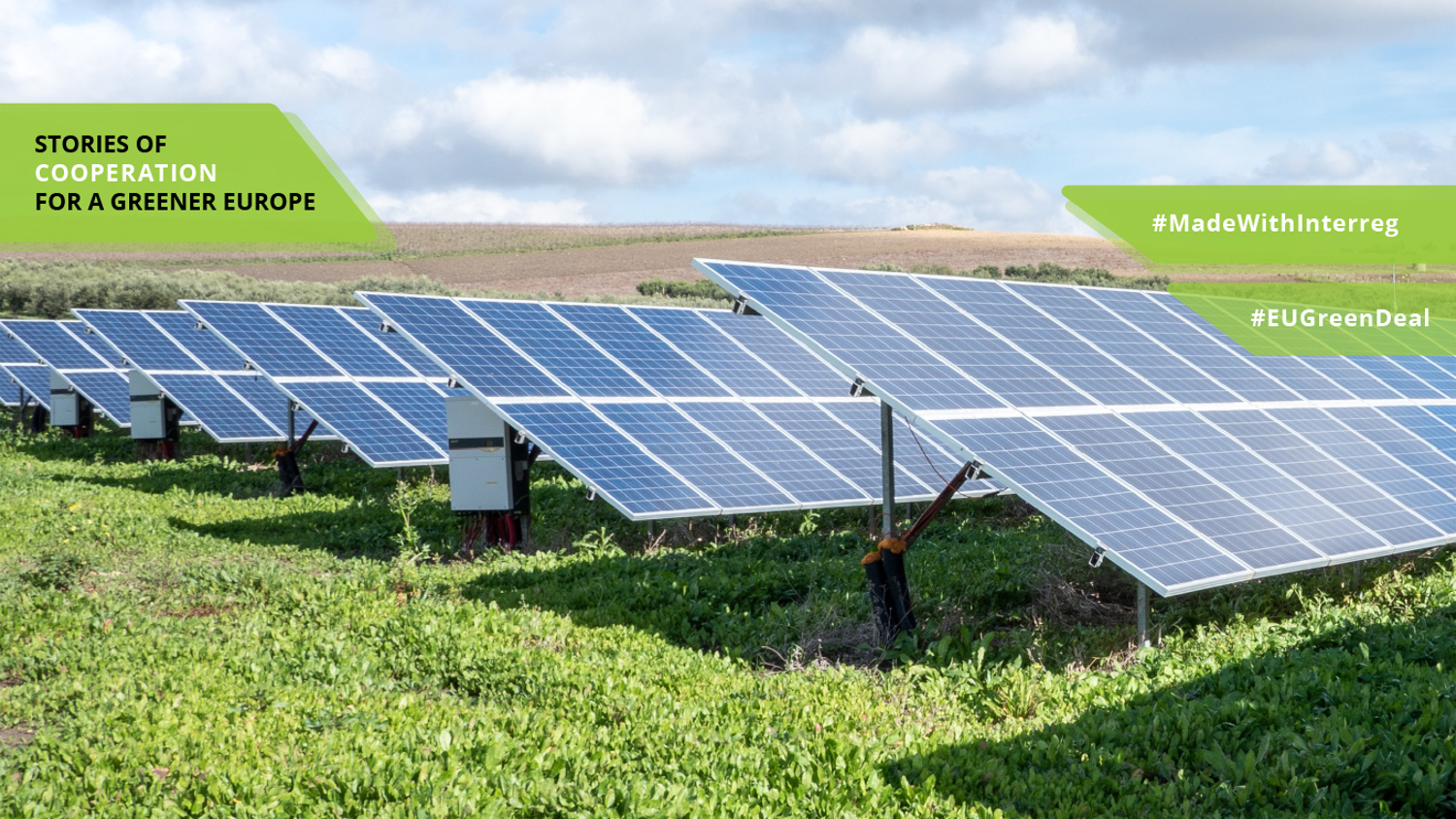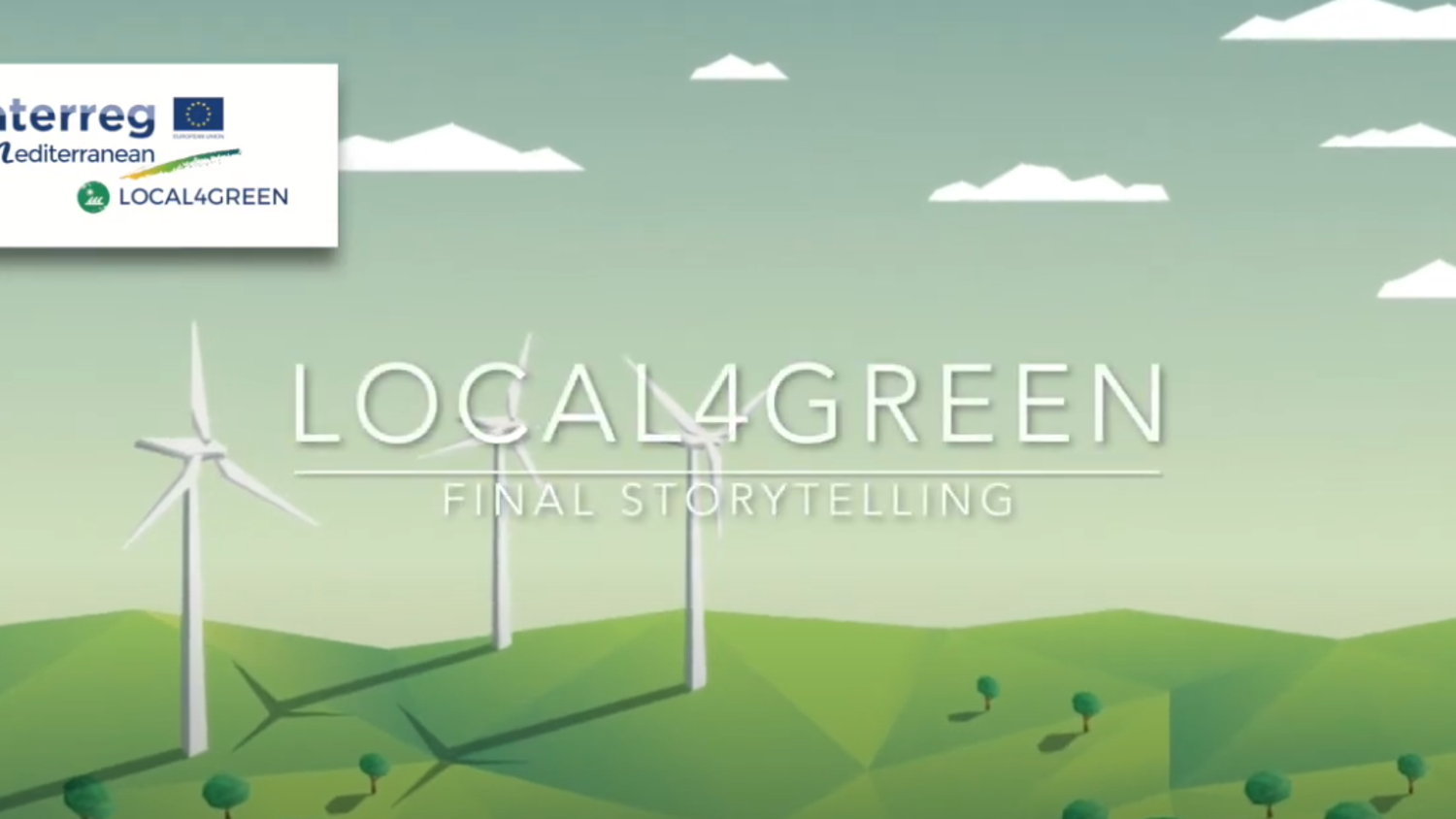
Small cities standing together towards energy transition
A 70% tax reduction for the purchase of the electric car has encouraged Francisco Javier Soler Coll from Spain to change his previous petrol-driven vehicle to a cleaner alternative. 'I wanted to do my bit to help, so I thought of buying a hybrid car. I finally made the leap when it turned out I could save money on vehicle tax and on fuel.'
A mix of urban renewable energy technologies has made an office building in Varna, Bulgaria self-sufficient, demonstrating how clean energy is both secure and efficient to cover the needs of municipal as well as residential buildings. 'As building owners in Varna are increasingly looking for alternatives to reduce their reliance on the grid, they are now able to see how photovoltaics and biomass heating systems work in practice,' Viktor Buzev, Chief architect in Varna Municipality explains.
What do these two very different examples have in common? In both cases, the transitioning to greener energy comes as the result of incentives provided by municipalities and based on recommendations and tools from Interreg projects.
Energy transition starts with local solutions
The European Green Deal has set the objective of reducing greenhouse gas emissions by at least 55% by 2030 to allow Europe to become the world’s first climate-neutral continent by 2050. However, the switch to renewable energy sources remains a multi-sectoral challenge, especially for medium-sized and smaller cities and islands where authorities possess little knowledge about opportunities of the changes in the energy sector combined with limited autonomy from national governments to put in place any new environmental regulations.

With different instruments but the same goal of accelerating the energy transition in EU regions at the local level, two European projects have created solutions to address the issue. In the Mediterranean area, the LOCAL4GREEN project has designed recommendations to promote renewable energy sources at local level by implementing green fiscal policies. The City Storage and Sector Coupling Lab – CSSC LAB project in the Danube Region works to improve local sustainability by familiarizing municipalities and smaller cities with innovative technologies integrating the generation, storage and use of electric power from renewables.
Greening local policies
The organisations involved in these projects operate in countries with different regulations regarding green taxation, but they encounter the same difficulty: the regulations are centralised in the national governments, leaving local authorities almost powerless to put in place new environmental taxes/fees or modify the existing ones.
Yet, the municipalities have a key role to play. That’s why LOCAL4GREEN has targeted them as main stakeholders of the project and helped them elaborate policy recommendations to improve their capacity to regulate green taxation.
During the project, 10 partners from 9 Mediterranean countries (Albania, Croatia, Cyprus, Greece, Italy, Malta, Slovenia, Spain to Portugal) have cooperated to promote the use of renewables in their territories. The transnational cooperation has allowed partners to know the different national regulations regarding green local taxation and the legislative barriers for their implementation.
Green fiscal policies driving local energy transitions
In total, 78 Mediterranean pilot municipalities located in rural areas and islands were involved in the project. 173 green local fiscal policies to promote renewable energy sources have been designed and 79 policies have been approved by 34 municipalities. Most policies entail a reduction on property tax, fee for construction of new buildings/refurbishment, fees for use or occupation of public land, tax on economic activities, the municipal buildings leasing/renting revenues and the waste collection and lighting fees. Concretely, each taxpayer that makes the effort of using renewable energy gets a 50-70% tax reduction.
On the other hand, if municipalities wished to install photovoltaic panels on their roof, they would be rewarded by subsidies. Concerning the private sector, enterprises were also able to save money thanks to the project. For instance, Rolster SME in the Valencian region has reported savings of up to 20% of cost on the installation of photovoltaic panels.
In the end, almost 900 000 taxpayers have had access to fiscal incentives to promote renewables or have been impelled by fiscal measures to switch to greener sources of energy.
Demonstrating sustainable energy
Greening of urban energy especially in case of heating, transport and manufacturing, requires the rollout of many new technologies. That is where sector coupling, which refers to integrating renewable energy sources, storage and consumption, could help. In smaller cities, this is faced with various challenges, including a lack of awareness of the options that are available.
The City Storage and Sector Coupling Lab (CSSC Lab) project looks for ways to help them. It developed a matrix, in which different urban sector coupling solutions are evaluated concerning effectiveness for small and medium-sized cities. 'That way, it becomes easier for municipalities in the Danube Region to choose solutions for their specific local context, building on the experience of other cities with similar characteristics', explains the Lead project manager of CSSC Lab, Marko Čavar from North-West Croatia Regional Energy Agency.
To demonstrate how new technologies can be applied in a real-life municipal context in smaller cities in the Danube Region, the project is establishing CSSC demo-centres in four partner countries. In first such facility, launched in April 2021 in Varna, Bulgaria, a mix of photovoltaics, a 23 KWh battery system and biomass heating system, turned an office building in Varna into 100% energy self-sufficient.
Meeting the needs of all its five employees and at the same time, charging two electric cars parked next to it, the demo site serves as an example to show how even smaller municipalities can put systems in place to increase their contribution to meeting EU climate targets. Project partner in Bulgaria, Mariyana Kancheva, CEO of the Union of Bulgarian Black Sea Local Authorities estimates that 'as the local government of the city of Varna is greatly committed to improving air quality in the city, it is likely that this exact model of an energy self-sufficient building combined with a charging station for public use can be replicated also on other sites'.


